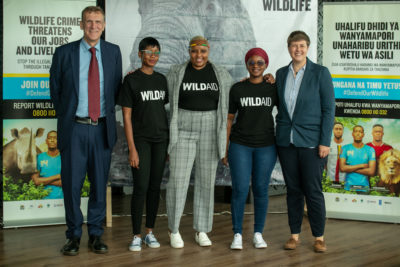
The Tanzanian government, WildAid and the United Nations Development Program have launched a #DefendOurWildlife campaign in Dar es Salaam, to bring an end to the illegal trafficking of wildlife through East Africa’s ports and cargo terminals, supported by international football stars, WildAid celebrity ambassadors, and our conservation partners.
Before the pandemic, East Africa’s amazing wildlife helped to draw more than 5 million tourists a year to Tanzania, Kenya and Uganda. Tourism accounts for between 8 and 17% of GDP in the region. It provides at least 1.5 million jobs in Kenya, a similar number in Tanzania, and another 600,000 jobs in Uganda. But these countries’ proud natural heritage, and their people’s jobs, are under increasing threat.
The campaign targets workers at East Africa’s port and cargo terminals to give them the information and support they need to end the illegal trafficking of wildlife and wildlife products. The governments of Kenya, Tanzania and Uganda have also established telephone hotlines for members of the general public and even government workers to report wildlife crime, toll-free and anonymously.
Watch highlights from the #DefendOurWildlife campaign launch in Tanzania
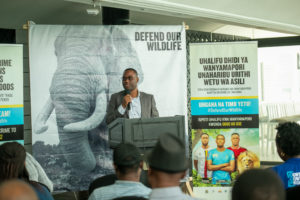

Abed Abed, Principal Operations Officer, Tanzania Ports Authority said: “As Tanzania Ports Authority, we have a great responsibility to fight maritime trafficking of wildlife and wildlife products, because we are the main gateway for the transportation of goods including illegal wildlife products.”
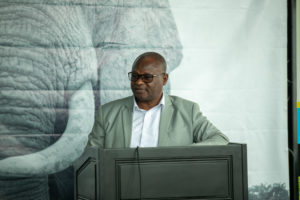

“We congratulate WildAid for having such a program and planning. We are sure that it will help a lot of us in taking control of this. We are carriers and transporters, but we are not supporting this illegal trade”, said Abel Uronu, Executive Secretary of Tanzania Shippers Association (TASAA).
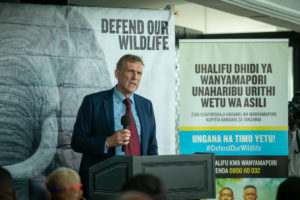

WildAid Africa Program Manager, Simon Denyer, said that the ports of East Africa have been used to transport illegal wildlife from all over Africa, through Uganda, Tanzania and Kenya and out towards Asia. “By making these ports difficult places to ship wildlife, we’re not just protecting the wildlife of Tanzania, we’re protecting the wildlife of the whole of Africa.”
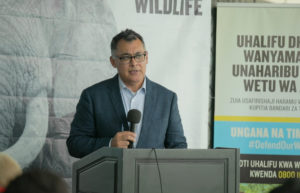

“Defending wildlife really depends on all of us, and so is an important link in the crime chain which together we can stop,” said Nathan Sage, USAID Team Leader.
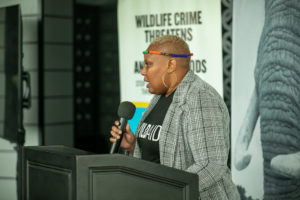

Tanzanian songstress and WildAid ambassador, Nakaaya Sumari, also known as “The Lioness” joined the launch in Dar es Salaam. With her academic background in wildlife and tour guide management, she has a deep passion for wildlife conservation. “I really believe strongly that every living thing has a right to life. Every creature has a right to life and we can all live. We have to use what we have – our voices – to stop this.”
“Tanzania is beautiful. It is our responsibility to preserve it. It’s us, we need to be the ones doing the bulk of the work. And I’m ready. Are you ready?”
The campaign has been designed under the UNDP-GEF-USAID “Reducing Maritime Trafficking of Wildlife between Africa and Asia” Project under the GEF-financed, World Bank-led Global Wildlife Program (GWP), with WildAid as the implementing partner.
Follow these links for more information on how you can join our team to help stop the illegal trafficking of wildlife and wildlife products through East Africa’s ports.
East African footballers lend their voices to new campaign to end illegal wildlife trafficking
Join our team, #DefendOurWildlife
Stay in touch and get the latest WildAid updates.
SIGN UP